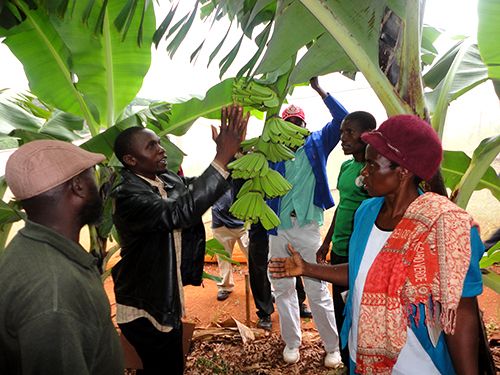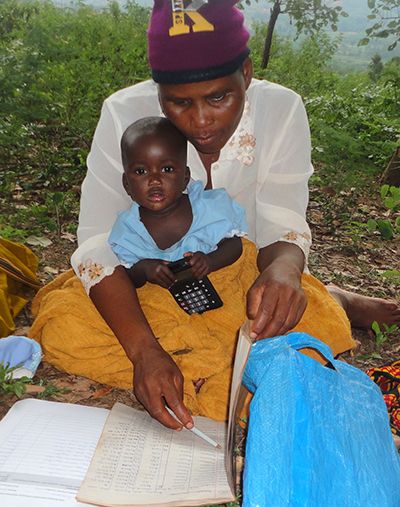 By working closely with the local private-sector and governmental partners, NCBA CLUSA helped ensure the long-term, market-led sustainability of 46,349 smallholder farmer entrepreneurs with the $1.7 million USAID-funded Zimbabwe Agricultural Income and Employment Development (Zim-AIED) project, which closed June 30.
By working closely with the local private-sector and governmental partners, NCBA CLUSA helped ensure the long-term, market-led sustainability of 46,349 smallholder farmer entrepreneurs with the $1.7 million USAID-funded Zimbabwe Agricultural Income and Employment Development (Zim-AIED) project, which closed June 30.
Since May 2011, Zim-AIED has helped rural smallholder farmers in Zimbabwe rethink their livelihoods as businesses. The project worked to commercialize smallholder agriculture by providing financial literacy training, connecting farmer groups to reliable markets, facilitating access to credit and finance, and introducing new technologies and crop varieties to maximize producer yields and incomes.
Under Zim-AIED, banana farmers in Zimbabwe’s Honde Valley increased their yields from 4 to 40 tons per 2.5 acres—a 900 percent increase—by adopting project-recommended practices. Zim-AIED provided basic business skills—such as budgeting, contract management, credit control, record-keeping, risk management and marketing principles—coupled with training in crop rotation, irrigation, mulching, herbicide use and proper fertilizer application.
 Farmers who successfully implemented these agricultural best practices were designated as “lead farmers” who played a mentorship role among other farmers in their communities.
Farmers who successfully implemented these agricultural best practices were designated as “lead farmers” who played a mentorship role among other farmers in their communities.
Banana farmers are now earning an average of $3,500 per year, up from $600 before project interventions. Since the beginning of the project, organized farmer groups have produced 3,761 tons of bananas with a sales value of $1.1 million.
In 2014, Zim-AIED prioritized gender issues across the project’s objectives, rebranding the project’s theme, “Farming as a Business,” to “Farming as a Family Business.” The move addressed gender disparities by setting quotas for women in leadership positions and jointly training couples, increasing women’s participation in farming activities and business decisions. In eastern Zimbabwe’s Manicaland Provence, Zim-AIED achieved a 43.6 percent increase in women serving in leadership roles.
NCBA CLUSA also worked with microfinance institutions to design group lending models to co-guarantee credit to 1,600 farmers. By achieving close to 100 percent repayment, these farmers are now considered low-risk candidates for future credit opportunities from local banks.
To help farmer groups self-manage after the close of Zim-AIED, NCBA CLUSA prioritized strengthening the organizational capacity of farmer groups by introducing a self-evaluation tool to measure governance, administration, production and marketing.
Under Zim-AIED, NCBA CLUSA partnered with international development contractor Fintrac, the prime project implementer. Zim-AIED contributed to ongoing efforts across the region to reduce poverty and under-nutrition—key objectives of Feed the Future, the U.S. Government’s global hunger and food security initiative.


